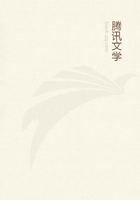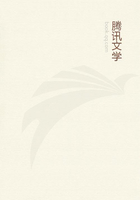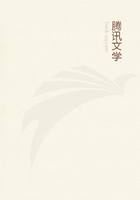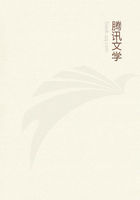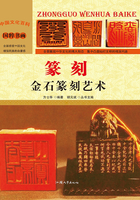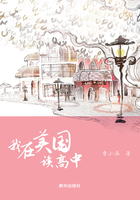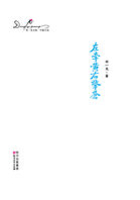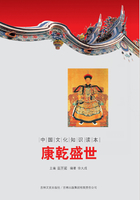In its positive aims, however, this form of Socialism aspires either to restoring the old means of production and of exchange, and with them the old property relations, and the old society, or to cramping the modern means of production and of exchange, within the framework of the old property relations that have been, and were bound to be, exploded by those means. In either case, it is both reactionary and Utopian.
Its last words are: corporate guilds for manufacture, patriarchal relations in agriculture.
Ultimately, when stubborn historical facts had dispersed all intoxicating effects of self-deception, this form of Socialism ended in a miserable fit of the blues.
C. German, or "True," Socialism The Socialist and Communist literature of France, a literature that originated under the pressure of a bourgeoisie in power, and that was the expression of the struggle against this power, was introduced into Germany at a time when the bourgeoisie, in that country, had just begun its contest with feudal absolutism.
German philosophers, would-be philosophers, and beaux esprits, eagerly seized on this literature, only forgetting, that when these writings immigrated from France into Germany, French social conditions had not immigrated along with them. In contact with German social conditions, this French literature lost all its immediate practical significance, and assumed a purely literary aspect. Thus, to the German philosophers of the eighteenth century, the demands of the first French Revolution were nothing more than the demands of "Practical Reason" in general, and the utterance of the will of the revolutionary French bourgeoisie signified in their eyes the law of pure Will, of Will as it was bound to be, of true human Will generally.
The world of the German literate consisted solely in bringing the new French ideas into harmony with their ancient philosophical conscience, or rather, in annexing the French ideas without deserting their own philosophic point of view.
This annexation took place in the same way in which a foreign language is appropriated, namely, by translation.
It is well known how the monks wrote silly lives of Catholic Saints over the manuscripts on which the classical works of ancient heathendom had been written. The German literate reversed this process with the profane French literature. They wrote their philosophical nonsense beneath the French original.
For instance, beneath the French criticism of the economic functions of money, they wrote "Alienation of Humanity," and beneath the French criticism of the bourgeois State they wrote "dethronement of the Category of the General," and so forth.
The introduction of these philosophical phrases at the back of the French historical criticisms they dubbed "Philosophy of Action," "True Socialism," "German Science of Socialism,"
"Philosophical Foundation of Socialism," and so on.
The French Socialist and Communist literature was thus completely emasculated. And, since it ceased in the hands of the German to express the struggle of one class with the other, he felt conscious of having overcome "French one-sidedness" and of representing, not true requirements, but the requirements of truth; not the interests of the proletariat, but the interests of Human Nature, of Man in general, who belongs to no class, has no reality, who exists only in the misty realm of philosophical fantasy.
This German Socialism, which took its schoolboy task so seriously and solemnly, and extolled its poor stock-in-trade in such mountebank fashion, meanwhile gradually lost its pedantic innocence.
The fight of the German, and especially, of the Prussian bourgeoisie, against feudal aristocracy and absolute monarchy, in other words, the liberal movement, became more earnest.
By this, the long wished-for opportunity was offered to "True"
Socialism of confronting the political movement with the Socialist demands, of hurling the traditional anathemas against liberalism, against representative government, against bourgeois competition, bourgeois freedom of the press, bourgeois legislation, bourgeois liberty and equality, and of preaching to the masses that they had nothing to gain, and everything to lose, by this bourgeois movement. German Socialism forgot, in the nick of time, that the French criticism, whose silly echo it was, presupposed the existence of modern bourgeois society, with its corresponding economic conditions of existence, and the political constitution adapted thereto, the very things whose attainment was the object of the pending struggle in Germany.
To the absolute governments, with their following of parsons, professors, country squires and officials, it served as a welcome scarecrow against the threatening bourgeoisie.
It was a sweet finish after the bitter pills of floggings and bullets with which these same governments, just at that time, dosed the German working-class risings.
While this "True" Socialism thus served the governments as a weapon for fighting the German bourgeoisie, it, at the same time, directly represented a reactionary interest, the interest of the German Philistines. In Germany the petty-bourgeois class, a relic of the sixteenth century, and since then constantly cropping up again under various forms, is the real social basis of the existing state of things.
To preserve this class is to preserve the existing state of things in Germany. The industrial and political supremacy of the bourgeoisie threatens it with certain destruction; on the one hand, from the concentration of capital; on the other, from the rise of a revolutionary proletariat. "True" Socialism appeared to kill these two birds with one stone. It spread like an epidemic.

